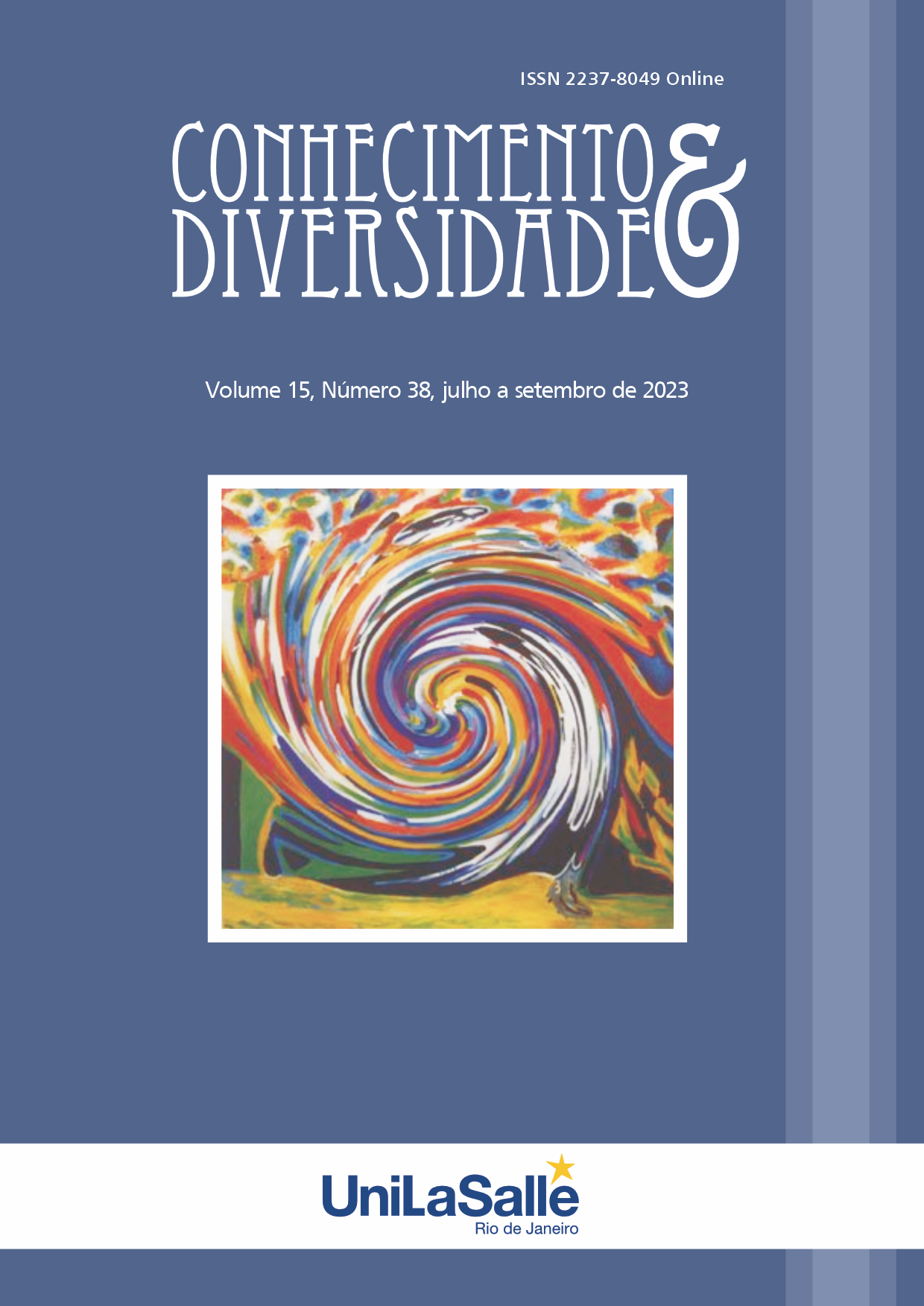DIGITALIZAR A EDUCAÇÃO NA ERA DAS PANDEMIAS:
UM ESTUDO DOS EFEITOS TRANSFORMADORES DA COVID-19
DOI:
https://doi.org/10.18316/rcd.v15i38.11033Palavras-chave:
Digitalization of education, Online educationRemote learningQuestionnaires, Analysis of attitude towards online learningResumo
O artigo investiga o impacto da pandemia da COVID-19 na aceleração dos processos de digitalização no domínio da educação. Especificamente, o estudo examina o desenvolvimento e a melhoria dos formatos de aprendizagem em linha durante este período, destacando tanto as vantagens como as desvantagens, bem como identificando os estrangulamentos e os desafios que surgiram. O documento apresenta os resultados de um inquérito realizado entre os estudantes de licenciatura e mestrado da Faculdade de Ensino à Distância da Universidade Russa de Economia Plekhanov, categorizados de acordo com as suas áreas de estudo, para determinar a eficácia dos processos e métodos de aprendizagem à distância. Além disso, foram realizadas entrevistas aprofundadas para fornecer uma análise mais pormenorizada das vantagens e desvantagens da aprendizagem em linha, bem como potenciais soluções para melhorar os processos de aprendizagem à distância. De um modo geral, este documento oferece informações valiosas sobre o papel da pandemia como catalisador da transformação digital na educação e fornece recomendações para melhorar a eficácia e a eficiência da aprendizagem em linha.
Referências
Agranovich, M. (2020, May 21). Fal'kov V.: Uchebnyy god v vuzakh planiruyetsya nachat' 1 sentyabrya [V. Falkov: The academic year in universities is scheduled to begin on September 1]. Retrieved January 20, 2022 from https://rg.ru/2020/05/21/falkov-uchebnyj-god-v-vuzah-planiruetsia-nachat-1-sentiabria.html
Bouyahya, D. (2021). Reflective pedagogy within the new normal. University of Moulay Smail, Marocco. Retrieved February 2, 2022 from https://odr.rea.ru/media/reports/transformation-of-education.pdf
Chuang, I., & Ho, A. (2016). HarvardX and MITx: Four years of open online courses - Fall 2012 – Summer 2016. Retrieved from https://ssrn.com/abstract=2889436
Government of the Russian Federation. (2017). Decree of July 28, 2017 No. 1632-r “On approval of the program "Digital Economy of the Russian Federation”. Retrieved April 3, 2021 from http://pravo.gov.ru/proxy/ips/?docbody=&nd=102440918
Ito, H., Kasai, K., & Nakamuro, M. (2019). Does computer-aided instruction improve children’scognitive and non-cognitive skills, Evidence from Cambodia. RIETI Discussion Paper Series 19-E-040.
Kang, B. (2021). How the COVID-19 pandemic is reshaping the education service. In J. Lee, J., & S. H. Han (Eds.), The future of service post-COVID-19 pandemic. Vol. 1. The ICT and evolution of work (pp. 15-36). Singapore: Springer. https://doi.org/10.1007/978-981-33-4126-5_2
Kapranova, L. (2018). Tsifrovaya ekonomika v Rossii: Sostoyaniye i perspektivy razvitiya [Digital economy in Russia: State and development prospects]. Economy. Taxes. Right, 2, 58-69.
Kemp, S. (2020, January 30). Digital 2020. Global Digital Overview. Published in partnership with We Are Social and Hootsuite. Retrieved February 2, 2022 from https://wearesocial-net.s3-eu-west-1.amazonaws.com/wp-content/uploads/common/reports/digital-2020/digital-2020-global.pdf
Kolesnikova, K. (2021, January 12). V 2021 godu rynok onlayn-obrazovaniya v Rossii prodolzhit vzryvnoy rost [In 2021, the online education market in Russia will continue its explosive growth]. RGRU. Retrieved from https://rg.ru/2021/01/12/v-2021-godu-rynok-onlajn-obrazovaniia-v-rossii-prodolzhit-vzryvnoj-rost.html
Marinoni, G., Van't Land, H., & Jensen, T. (2020). The impact of Covid-19 on higher education around the world. IAU Global Survey Report. Retrieved from https://www.iau-aiu.net/IMG/pdf/iau_covid19_and_he_survey_report_final_may_2020.pdf
Ministry of Education and Science of the Russian Federation. (n.d.). Priority project "Modern digital educational environment in the Russian Federation". Retrieved April 3, 2021 from http://neorusedu.ru/
Mishra, L., Gupta, T., & Shree, A. (2020). Online teaching-learning in higher education during lockdown period of COVID-19 pandemic. International Journal of Educational Research Open, 1, 100012. https://doi.org/10.1016/j.ijedro.2020.100012
National Research University Higher School of Economics. (2020). Conclusion of the National Research University Higher School of Economics on the draft Federal Law "On the federal budget for 2021 and for the planning period of 2022-2023". Retrieved from http://komitet-bn.test.km.duma.gov.ru/upload/site7/NIU_VShE.pdf
Nedelkin, A. A., & Romanova, Y. D. (2018). Digital technologies in modern educational institutions [Tsifrovyye tekhnologii v sovremennykh obrazovatel'nykh uchrezhdeniyakh]. Economics and Management: Problems, Solutions, 3(1), 79-84.
Rambler. (2020, April 9). Uchenyye sravnili effektivnost' ochnogo i onlayn-obucheniya [Researchers compared the effectiveness of face-to-face and online learning]. Retrieved from https://news.rambler.ru/education/43978396/?utm_content=news_media&utm_medium=read_more&utm_source=copylink
Reich, J., & Ruipérez-Valiente, J. A. (2019). The MOOC pivot. Science, 363(6423), 130-131. http://dx.doi.org/10.1126/science.aav7958
Ribeiro, R. (2020, April 14). How university faculty embraced the remote learning shift. EdTech Magazine. Retrieved from https://edtechmagazine.com/higher/article/2020/04/how-university-faculty-embraced-remote-learning-shift
Zhenova, N. A. (2017). Nepreryvnoye obucheniye dlya biznesa [Continuous learning for business]. Distance and Virtual Learning, 5(119), 119-125.
Downloads
Publicado
Edição
Seção
Licença
Copyright (c) 2023 Vera Gerasimova, Yulia Romanova, Marina Melamud

Este trabalho está licenciado sob uma licença Creative Commons Attribution 4.0 International License.
Conforme recomendado pelo o Public Knowledge Project, a RCD adota para seus artigos uma licença CREATIVE COMMONS: Atribuição CC BY 4.0.
Esta licença permite que outros distribuam, remixem, adaptem e construam sobre o seu trabalho, mesmo comercialmente, desde que lhe dêem crédito pela criação original.
Esta é a licença mais adequada oferecida.
Recomendado para a máxima divulgação e uso de materiais licenciados.



